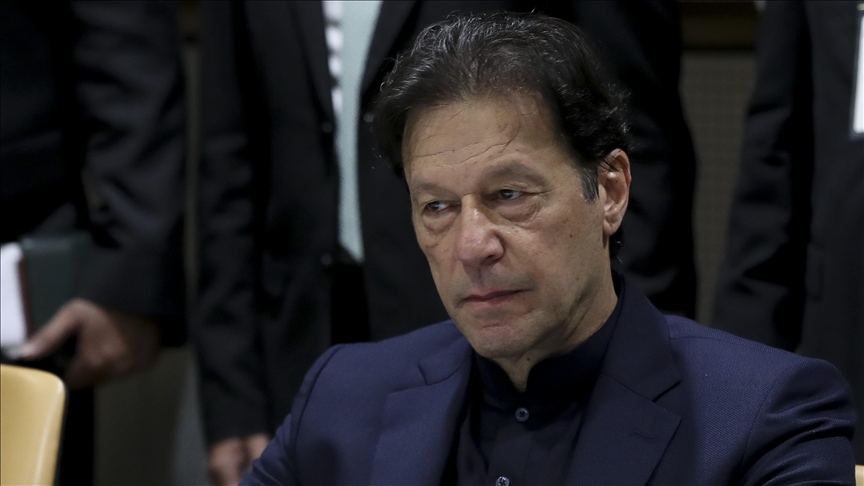Pakistani PM Imran Khan ousted in parliament no-confidence vote
174 lawmakers vote in favor of resolution, 2 more than the required 172
 FILE PHOTO
FILE PHOTO
ISLAMABAD, Pakistan
Pakistan’s parliament voted out Prime Minister Imran Khan in a no-confidence motion late Saturday, capping a month-long political turmoil that gripped the nation of 220 million.
As many as 174 lawmakers voted in favor of the no-trust motion, two more than the required 172 for a simple majority in the 324-member National Assembly, the lower house of parliament.
It is the first time a Pakistani prime minister has ever been ousted by a no-confidence motion put forward by the opposition.
The session was presided by Ayaz Sadiq, a former chair of the house, as Asad Qaiser and Qasim Suri, the speaker and deputy speaker, respectively, stepped down minutes before voting began.
The combined opposition, led by the Pakistan People's Party and Pakistan Muslim League-Nawaz, had submitted the no-confidence motion March 8.
Khan had lost his parliamentary majority after legislators from his party and key allies such as the Muttahida Qaumi Movement, a party based in the port city of Karachi, quit the ruling coalition.
The success of the no-trust move means the house will have to elect a new prime minister. The opposition has nominated Shehbaz Sharif, a former chief minister of Punjab, Pakistan’s largest province, for the post. The vote is expected to be held Monday.
Shehbaz, the head of the PML-N, paid tributes to all leaders who were part of the joint opposition and vowed that the new government would not indulge in politics of revenge.
The PPP’s Bilawal Bhutto Zardari also congratulated the house for passing the no-trust resolution.
Political turmoil
The vote, initially scheduled for April 3, was dismissed by the deputy speaker, who said it was brought forward at the behest of foreign powers, as alleged by Khan.
Soon after the ruling, Khan advised President Arif Alvi to dissolve the National Assembly and called for new elections.
But the opposition cried foul and petitioned the Supreme Court against the ruling, saying it was unconstitutional.
After hearing arguments from both sides for five days, the top court set aside the deputy speaker's ruling on Thursday, restored the assembly and called for holding the vote of no-confidence by Saturday.








